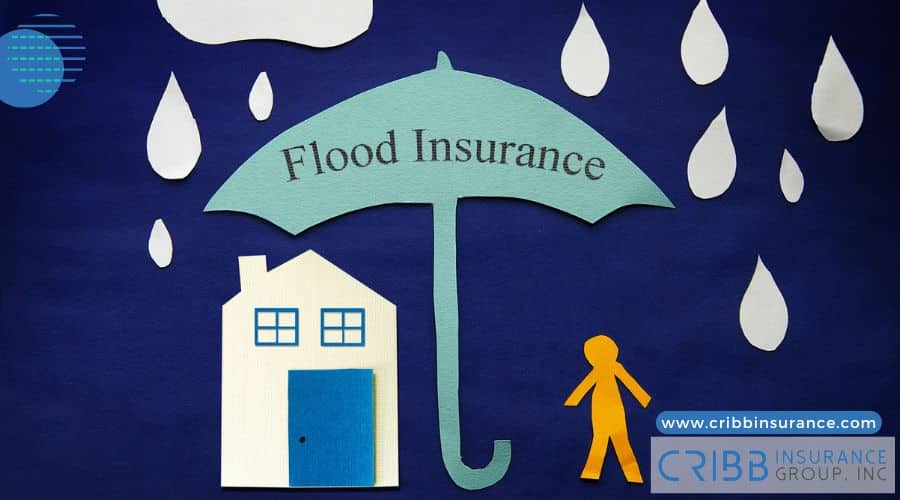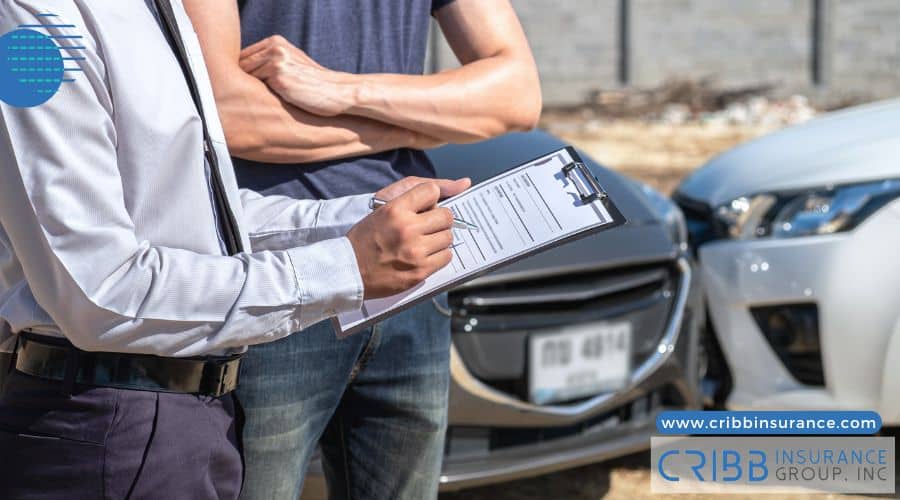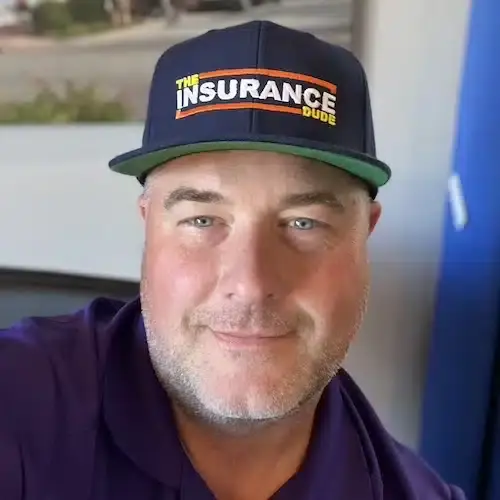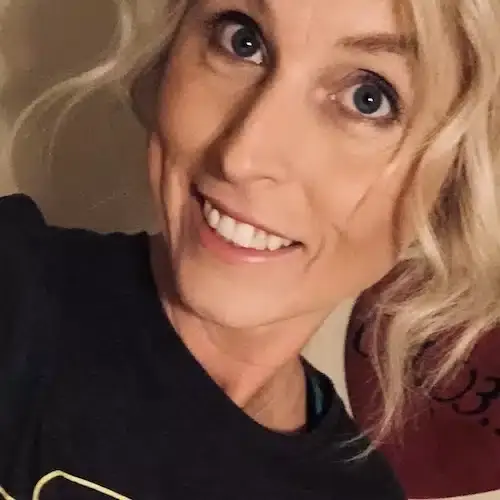Many homeowners assume their policy will cover all types of damage, but what is not covered by homeowners insurance can be just as important as what is. Standard policies have significant coverage gaps, leaving many homeowners exposed to unexpected repair costs. If you are wondering: what does home insurance not cover?, the answer depends on the type of damage, the cause, and whether the loss falls under specific exclusions. Certain disasters, water damage, personal property, and liability risks may not be covered unless additional policies or endorsements are added. Understanding these exclusions can help you make informed decisions about your coverage and avoid costly surprises.
Common Home Insurance Exclusions
Homeowners insurance provides broad protection, but it does not cover every possible risk. Many policies exclude specific events and damages, requiring homeowners to purchase separate insurance policies or endorsements to fill coverage gaps. The most common exclusions fall into a few key categories: natural disasters, water damage, high-value personal property, business-related losses, and liability issues. Understanding these exclusions can help homeowners prepare for unexpected costs and determine whether they need additional coverage.
Natural Disasters That Require Separate Policies
Homeowners’ insurance does not cover all-natural disasters, and some high-risk events require specialized insurance policies. If you live in an area prone to certain natural disasters, you may need to purchase a separate policy or endorsement to ensure your home is fully protected. Here are some common natural disasters not covered by homeowners insurance:
- Flood Damage: Homeowners insurance does not cover flood damage caused by heavy rainfall, overflowing rivers, storm surges, or melting snow. The National Flood Insurance Program (NFIP) provides separate flood insurance, which can be purchased through private insurers.
- Earthquakes and Landslides: Most policies exclude earthquake damage, as well as ground movement from landslides, sinkholes, and soil erosion. Homeowners in California, Oregon, and other high-risk states must purchase earthquake insurance separately.
- Wildfires in High-Risk Areas: While some policies cover wildfires, insurers in fire-prone states like California and Colorado may limit or exclude wildfire coverage. In such cases, homeowners may need state-sponsored fire insurance programs.
Before disaster strikes, review your homeowners’ insurance policy and consider adding endorsements or purchasing separate coverage if you live in an at-risk area.
Water Damage That Home Insurance Will Not Cover
Not all water damage is covered under homeowners insurance. While sudden and accidental damage from burst pipes or plumbing failures is typically covered, many other types of water-related damage are excluded from standard policies. If you experience gradual leaks, flooding, or sewage backups, your claim may be denied unless you have additional coverage. Types of water damage not covered by homeowners insurance include:

- Sewer Backups and Sump Pump Failures: If a sewer line backs up into your home or your sump pump fails, standard homeowners insurance will not cover the cleanup and repairs. Many insurers offer water backup coverage as an optional endorsement.
- Slow Leaks and Gradual Water Damage: If a pipe has been leaking for months and causes mold, rot, or structural damage, your claim may be denied due to lack of maintenance. Insurance only covers sudden and accidental water damage, not damage caused by neglect.
- Flood-Related Water Damage: If your home is damaged by floodwaters from heavy rain, overflowing creeks, or storm surges, homeowners insurance will not cover the loss. Flood insurance must be purchased separately through FEMA’s National Flood Insurance Program (NFIP) or a private provider.
To protect your home against non-covered water damage, consider adding water backup coverage and a flood insurance policy, especially if you live in an area prone to heavy rainfall or high groundwater levels.
Personal Property Limits and Missing Coverage
Homeowners insurance does cover personal belongings, but policy limits may leave gaps if your valuables exceed standard coverage amounts. Many homeowners assume their expensive items are fully protected, only to discover that policy sub-limits cap reimbursements for certain high-value belongings. If you own jewelry, collectibles, electronics, or cash, you may need additional coverage to ensure full protection. Here are some personal property items that may not be fully covered by homeowners insurance:
- Jewelry, Art, and Collectibles: Standard policies limit jewelry coverage to around $1,500 to $2,500 per item. If you own high-value engagement rings, antiques, or art, you may need a scheduled personal property endorsement to ensure full replacement.
- Firearms, Tools, and Musical Instruments: Many policies cap coverage for firearms, professional tools, and musical equipment at low sub-limits. If these items exceed policy limits, you may not be reimbursed for their full value after a loss.
- Cash and Precious Metals: Homeowners insurance only covers small amounts of cash, typically $200 or less. If you keep gold, silver, or collectible coins at home, your policy may not cover their full value in case of theft or loss.
- Electronics and High-End Appliances: Insurance policies may not fully cover expensive gaming systems, high-end laptops, or smart home devices. Some insurers offer electronic endorsements to increase coverage.
To avoid coverage gaps, review your personal property coverage limits and consider adding scheduled personal property coverage or increasing limits for specific items.
Home Business and Rental Property Coverage Gaps
Standard homeowners insurance does not cover business-related losses or rental properties. If you operate a business from home or rent out a part of your property, your policy will not provide liability protection or cover damages related to these activities. Many homeowners wrongly assume their home insurance covers business equipment, client injuries, or rental property damage, only to have claims denied. Here are some home business and rental-related exclusions in homeowners insurance:

- Home-Based Business Liability: If a client visits your home and gets injured, your homeowners’ insurance will not cover legal costs or medical bills. A business liability policy is required for proper protection.
- Business Equipment and Inventory: If you store business inventory, tools, or equipment at home, homeowners insurance will not cover damage or theft. You may need commercial property insurance.
- Rental Property Liability: If you rent out a room or an entire home, your standard policy will not cover injuries, tenant damages, or legal claims from renters. A landlord insurance policy is needed for rental units.
- Short-Term Rentals (Airbnb and VRBO): Most insurers exclude coverage for short-term rentals. If you rent out your home on Airbnb, you may need a specialized short-term rental insurance policy.
If you run a business from home or rent the out property, talk to your insurance provider about business insurance, landlord insurance, or short-term rental coverage to ensure full protection.
How to Protect Yourself From Coverage Gaps
Understanding what is not covered by homeowners insurance is only the first step. To ensure your home is properly protected, it is essential to review your policy regularly and consider additional coverage options. By taking proactive steps, you can fill any gaps and avoid being caught off guard when a claim is filed. The following strategies will help you address these coverage exclusions and ensure that your home and personal property are fully protected.
Reviewing Your Policy for Hidden Exclusions
Many homeowners may not fully understand the terms of their homeowners’ insurance policy, including hidden exclusions that may leave them unprotected. It’s important to thoroughly review your policy to identify any coverage gaps that could arise from specific exclusions. Reviewing your policy annually or whenever there are significant changes in your home or lifestyle can help ensure that your coverage remains adequate. Key aspects to review in your policy include:
- Exclusion Clauses: Carefully read through policy exclusions to understand what types of damage and incidents are not covered. This will help you determine where you may need additional coverage.
- Coverage Limits: Verify that your policy limits for personal property and liability are sufficient to cover the value of your home and belongings. Some items, like high-value items or electronics, may require higher limits.
- Deductibles: Ensure that your deductibles are set appropriately. A high deductible may lower premiums, but it also means you’ll need to pay more out of pocket in the event of a claim.
- Policy Endorsements: Check for optional endorsements (riders) that can be added to your policy for additional protection. These can help fill specific coverage gaps for items such as jewelry or valuable art.
Regularly reviewing your policy details will help you identify any potential risks, ensuring that you’re not left vulnerable when you need to file a claim.
Optional Coverages That Fill the Gaps
While homeowners insurance provides broad coverage, it may not cover everything. Fortunately, optional add-ons or endorsements can help fill the gaps in your policy, offering additional protection for specific risks that may otherwise be excluded. These optional coverages can be customized to suit your individual needs, giving you more peace of mind. Optional coverages to consider include:
- Flood Insurance: If you live in an area prone to flooding, flood insurance can protect against water damage that isn’t covered by standard policies. This coverage can be purchased through FEMA or private insurers.
- Earthquake Insurance: For homeowners in high-risk areas, earthquake insurance offers protection against the significant damage caused by earthquakes, which is typically excluded in standard homeowners policies.
- Water Backup Coverage: If your home is at risk of sewer backups or sump pump failures, you can add water backup coverage to your policy. This helps cover the costs of cleanup and repairs in case of a plumbing failure.
- Scheduled Personal Property Coverage: If you have valuable items such as jewelry, art, or collectibles, consider adding scheduled personal property coverage to your policy. This ensures that your high-value items are fully insured, beyond the standard policy limits.
- Umbrella Insurance: If you need more liability coverage, an umbrella insurance policy can help protect you from liability claims that exceed the limits of your homeowners insurance.
Consult your insurance agent to determine which optional coverages best suit your needs and can help fill gaps in your protection.
Preventive Steps to Avoid Denied Claims
To minimize the risk of having your claims denied, it’s crucial to take preventive steps that reduce the likelihood of damage and ensure that your home is well-maintained. Insurance providers may deny claims if the damage is found to be the result of neglect or lack of maintenance. By being proactive, you can avoid these issues and keep your home in good condition. Key steps to prevent denied claims include:

- Regular Maintenance: Maintaining your home regularly can prevent issues like leaky pipes, roof damage, or pest infestations that may lead to costly claims. Keeping up with routine inspections of plumbing, roofing, and HVAC systems can prevent sudden failures.
- Document Your Belongings: Keep a home inventory of your personal property, including receipts, photos, and serial numbers. This documentation will make it easier to file a claim and ensure that your valuables are properly insured.
- Install Smoke Detectors and Security Systems: Installing smoke detectors, fire alarms, and security systems in your home can prevent accidents and protect your property from theft or damage, ensuring that you meet policy requirements for safety measures.
- Address Maintenance Issues Promptly: If you notice any potential issues, such as a damaged roof, cracks in the foundation, or malfunctioning plumbing, have them repaired immediately. Delaying repairs can lead to further damage, which may not be covered under your policy.
Taking these preventive steps helps ensure that your home stays in good condition and reduces the chances of a denied claim. This proactive approach can save you money and stress in the long run.
Protect Your Home from Coverage Gaps
Your homeowner’s insurance may not cover everything. By understanding what is not covered by homeowners insurance, you can identify the gaps in your policy and take action to protect your home from unexpected costs. With the right coverage, you can ensure that you are fully protected from both common and unusual risks. Cribb Insurance Group Inc can help you assess your current policy and recommend options that suit your needs. With our expertise, you can customize your coverage to meet your unique circumstances.
Reviewing your homeowner’s insurance regularly and adding the right coverage options is crucial. Cribb Insurance Group Inc in Bentonville, AR, offers tailored policies to ensure that you’re protected against all the right risks. Don’t leave your home vulnerable, be proactive and make sure you’re fully covered for every possible scenario.
Frequently Asked Questions
Does homeowners insurance cover damage caused by pets?
Homeowners insurance generally does not cover damage caused by pets unless the incident falls under specific liability coverage. For example, if a dog bites someone or damages property, some policies may cover liability costs. However, if a pet damages personal property, such as furniture or carpets, it will likely not be covered under the standard homeowners policy. You may want to look into personal liability insurance for additional protection.
Will my policy cover personal items in my car?
Typically, homeowners insurance does not cover personal property inside a vehicle. If items are stolen or damaged inside your car, auto insurance (specifically comprehensive coverage) would cover the loss. However, if items are stolen from your home or damaged during a covered event, your homeowners’ insurance may cover the loss. Always check your auto policy for coverage details related to personal property.
Can I file a claim for home foundation cracks?
Homeowners insurance generally does not cover foundation cracks unless they are caused by a covered peril, such as a storm or earthquake. However, if the cracks result from wear and tear or lack of maintenance, the claim may be denied. It’s important to maintain regular foundation inspections to avoid damage that may not be covered under your policy.
Do homeowners insurance cover tree removal after a storm?
If a tree falls on your house, homeowners insurance may cover the cost of removal if the tree causes damage to the structure. However, if the tree does not cause damage to the home or property, removal may not be covered. Additionally, tree removal may be covered if the tree blocks a driveway or pathway and poses a safety hazard. Always check your policy details for specific exclusions related to tree removal.
What happens if my neighbor’s tree falls on my house?
If a neighbor’s tree falls on your house, homeowners insurance may cover the damage, depending on the circumstances. Typically, your homeowner’s policy will cover the damage to your property, but you may be able to file a claim against your neighbor’s insurance if the tree’s fall was due to their neglect. Liability laws vary by state, so you should review your insurance policy and local laws for guidance.
Ensure Comprehensive Protection with Cribb Insurance Group Inc
For more information on how to protect your home, Cribb Insurance Group Inc is here to assist. With our expertise, we can guide you through the available options and ensure that your homeowner’s policy includes all the protection you need. Don’t risk leaving gaps in your coverage. Get in touch with us today at (479) 286-1066 and make sure your home and personal property are fully insured.





